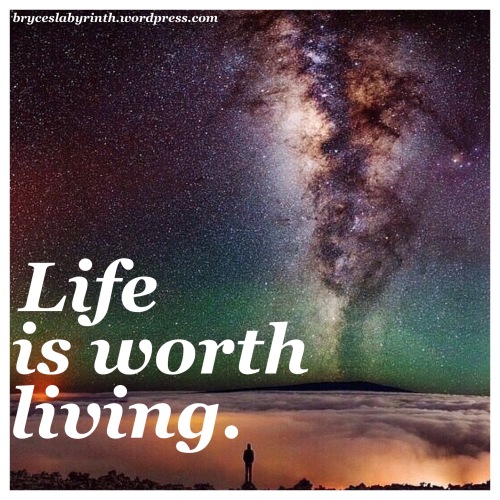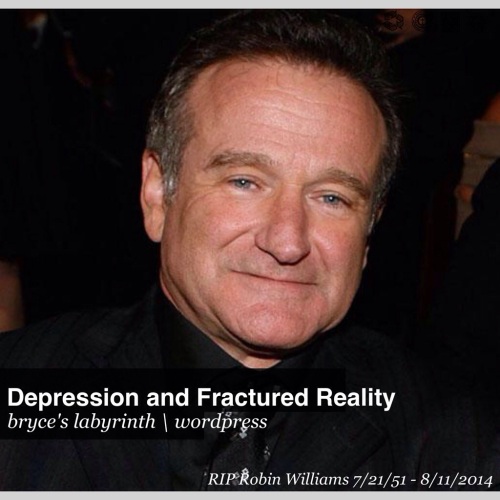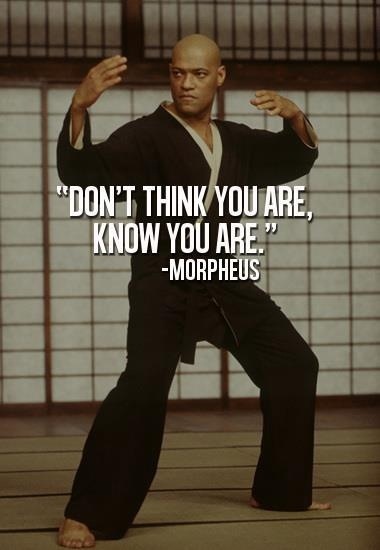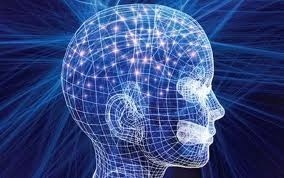Life is worth living
The purest desideratum,
Is the relentless wish to survive.
The other day, my best friend sent me the picture I’ve used as the image for this post and she asked, “is this what the Creator looks like?”
Although my views on God and origin have shifted a bit over the last few years, I found myself staring deeply into the image, lost in the unspeakable magnitude of the framework we call the cosmos. The response was visceral.
Life is an extraordinarily difficult process; I think we all can attest to that. From the simplest bacterium to we complex humans, the force that animates us does not come with a whole lot in terms of explicit instructions. Although our genetic code does imbue us with some basic survival programs, these programs very quickly enter into anfractuous relationships with our surroundings and our sensory percepts; things very quickly degrade into confusion.
Confusion is the hallmark of our species without a shadow of a doubt, but this makes sense given how things are set up and how they’ve unfolded. We went from an arboreal species, advanced monkeys, to hyper-minded creatures with the ability to make deliberate plans and communicate them through natural, highly complex language. As our brains grew to accommodate the increased cognitive demand necessary for complex language, we developed all the metacognitive (thinking about thinking) and abstract abilities that have come to be seen as more or less uniquely human.
In addition, humans are an extremely social species; however, we are paradoxically driven to express our own individuality as contribution to the overall collective and the result is generally a cacophony of ideology and conflicts of self.
Through our history, we have mostly let our minds languish in relative ignominy given that we did not understand them. The mind has usually been seen as a ward of the spirit or soul or a black box of the brain; we have only recently seen the “cognitive revolution” which inspired critical thought about the emergent processes occurring deep within our neural tissue.
So many people have been ill-equipped at understanding the complexities of their own biological and psychical architecture: for millennia, we have persecuted those with mild or severe mental afflictions as weak-willed or demon possessed respectively.
From a top-down and a lateral network view, we have expected those in our populous to gain control over their psychological life and act accordingly.
It has never been that simple.
From genetic abnormalities to pernicious childhood environments, humans face extremely stout obstacles along their journey through life (much like any animal). Nature proper has always been seen as the grounds of random chance and primal interactions, whereas we, being minded creatures, would be able to circumvent the trachles of existence through conscious thought. This makes intuitive sense, but of course, leaves much of the story untold.
As things would have it, humans are just as much animal as any other creature roving our semi-aquatic planet. What we possess is an elegant form of inhibition that allows us to overrule some unconscious drives through learned experiences. Looking at ourselves as advanced animals and our systems of perceptual monitoring as evolved survival structures, it should come as no surprise that they are not without flaw. Our brains do not come fully equipped to do everything necessary to flourish through life. More to the point, we are not fully equipped to even know what those things are. Normal distribution, the “bell curve” most of us are familiar with, again sees to it that different folks have different strengths and weaknesses — genetic diversity in the pool as it were. Therefore, it is not about some stock set of characteristics that a human MUST develop in order to be successful, but that we all possess a mishmash of traits that can be expressed. Our advanced status is still only a phase in the evolutionary tale of the Universe.
So, the perception of life is not as cut and dry as common sense would make it. Life is an extremely simple process: continue to live and express genes for as long as possible then pass on those successful genes to subsequent generations. However, the expression of life, especially for creatures as complex as humans is anything but simple.
I have never battled clinical depression, but I have entertained thoughts of suicide in the last couple years. Extreme stress and few solutions led me to think through myriad ends. So, I can empathize with those that struggle with chronically depressed mood, dysthymia, or endure a major depressive episode. When I have discussed depression with those who fight through it, many of them compare it to having an outrageous weight on their chest. Neuroscience would say their state of consciousness, the very background on which they view both the outer and inner worlds, is pathologically altered.
All manner of personality, mood, and behavioral disorder have been subjectively described by clinical patients and recorded fastidiously in the annuls of medicine and they all reflect a common theme:
Shit is complicated in our brains. Shit is complicated in humans.
With the passing of Robin Williams and fellow schoolmate of mine, Simone Battle — by their own hands — I want to remind you readers the severity of the states of consciousness, the states of monitoring that we all delicately balance on a daily basis. For most of us, this is only rarely a problem, but for others, just getting up in the morning is a Herculean task. To actively engage is barely bearable.
I want to take this opportunity to think about life, human and nonhuman, as a means of describing the overarching narrative of existence.
This distal arm that we coast across the universe on is hundreds of thousands of lightyears away from the center of our galaxy. Our galaxy is one of hundreds of billions in the known universe — the implication being that the unknown or unseeable universe could stretch for trillions of more fathoms. Imbued in the properties of very special types of matter is the propensity to self-organize and increase in complexity, eventually producing things which can independently respond to stimuli. These organisms continue to replicate and evolve, eventually producing beings so wildly complex that they can even be swayed against fundamental survival instinct.
Humans are the only beings that have to be convinced that life is worth living.
To say that life is a miracle is an affront to the life process. Life is beyond implausible. There may be millions of other “Earths” in the universe, however, there are innumerable locations in the cosmos. Places that permit life are the dramatic minority.
Absurdist philosophy, made popular by individuals like Albert Camus, says that the existential crisis that arises in all humans stems from the realization that there is a gap between one’s personal experience of a purposeful existence and the infinitely apathetic, purposeless universe.
What grips me, de profundis, is that within every single vantage point, every single zoom level in any of the 3 spatial dimensions, exists infinitude within finitude. That is, every single fiber down the hypothetical strings at the Planck length possess an infinite amount of complexity and self similarity. A pure, abstract fractal design that is both sequential and parallel; hierarchical and communal.
The human form is not meant to be a form that comes equipped to be birthed, live, then die; instead, we are equipped to experience as many of these vantage points as possible on our journey throughout this ephemeral animation. To see that the infinite cosmos all the way down to the subatomic levels, expresses the same ineffable concepts and that they are both intimately involved in supporting our very existences.
Life is worth living because life has no intrinsic purpose. The liberation in nihilism should not be seen as destructive; instead, it should be seen as an invitation to generate your own explorative, adaptive process. Brains come into this world without innate instructions because an organism must adapt to the world around it; rigid structures are inflexible and flexibility is premium with regards to survival.
One must embrace the amorphous nature of the entire superstructure and wonder at its modularity throughout the respective vantages. One must wonder at how individual bodies undergo homeostasis to maintain life but that individual humans engage in social homeostasis to maintain the life of the species and consequently, Life proper.
I know that it is easy for me to embrace the purview that such a position is entitled to; there are those who become anxious in the face of such structurelessness. My piece to you is to continue to march forward and break down those walls. You must learn to no longer fear the vastness of life and accept the invitation to explore the entire construct, mentally and physically. Some will elect to follow methods laid out before them, other like myself, will choose to blaze new expressible paths. The infinitude of life beckons you and you possess the fortitude to take control of your human experience. It is not easy; it is not clean; it is not an overnight flight, but I promise — I PROMISE…
Life is worth living.





